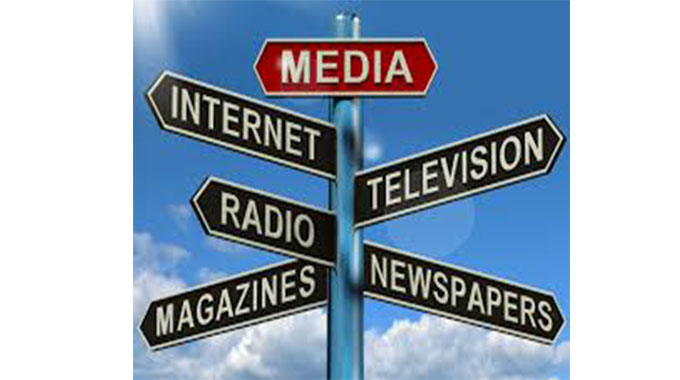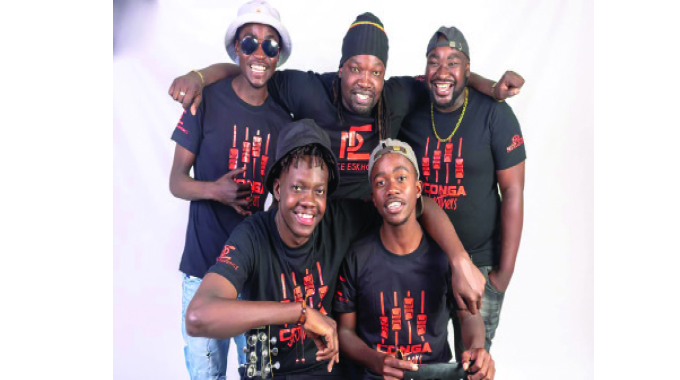Capacitate media on disasters and public health emergencies reporting

Gibson Mhaka
The devastation caused by the global Covid-19 pandemic and Cyclone Idai that killed more than 1 000 people across Mozambique, Malawi and Zimbabwe in 2019, has brought to the fore the challenges faced by journalists in developing countries like Zimbabwe when covering Disaster Risk Reduction (DRR) and Public Health Emergencies.
In emergency and crisis situations, journalists as conveyers of information are expected to do more than just informing and raising awareness about the situation.
The media is expected to assist in the management of disasters by educating the public about disasters and facilitate linkages between affected communities, disaster response organisations and the government.
The media can also make a real difference in the way people think and act, especially now when climate change is recognised as a major challenge that will aggravate people’s vulnerability to disasters.
The greatest public health emergency of our time, Covid-19, has demonstrated that journalists should be equipped with necessary media skills that enable them to provide local communities, especially those traumatised by disasters, with accurate, balanced and reliable information.
Research has shown that the pandemic has thrust many journalists into unfamiliar grounds, including coverage of expert opinion that is not backed up by peer-reviewed content, reporting on preprints and assessing high-complexity instant-response science.
There is a growing realisation that media practitioners need capacity strengthening on disaster preparedness as the best way to report on natural disasters and public health emergencies.
In a bid to address this gap, the Zimbabwe Union of Journalists (ZUJ) in collaboration with the United Nations Educational, Scientific and Cultural Organisation (Unesco) and European Union recently held a two-day training workshop with journalists on Reporting Disaster Risk Reduction and Public Health Emergencies in Zimbabwe.
The training was designed to equip journalists with skills on how best they can go beyond conventional news gathering by investigating why and how emergencies arise, how they can be mitigated and holding those responsible to account.
Addressing journalists, independent researcher in journalism, media and politics Mr Alexander Rusero said the Covid-19 pandemic had exposed journalists’ shortcomings when it comes to reporting public health emergencies and disasters.
“Journalists have the obligation to provide vital up-to-date information for victims, relief workers and the public. The public depends on journalists to give information which is reliable, objective, fair, and accurate. It is the role of journalists to practice what we call ‘solutions-based journalism,’ where reporters cover more than just bad news.
Another issue is that the voices of people from the places affected are sorely missing from mainstream journalism,” said Mr Rusero.
He stressed that unrelenting negative coverage can turn off viewers and readers, particularly those in the area affected by a disaster.
From Mr Rusero’s observation, it is clear that communication is an essential aspect of disaster mitigation, preparedness, response and recovery.
It is important to note that the media has a crucial role to play in disaster risk reduction as highlighted in The Sendai Framework for Disaster Risk Reduction 2015-2030, which calls on the media to take an active and inclusive role at the local, national, regional and global levels in contributing to the raising of public awareness and understanding of disasters.
The framework highlights the media’s role in disseminating accurate and non-sensitive disaster risk, hazard and disaster information, including on small-scale disasters, in a simple, transparent, easy-to-understand and accessible manner, in close cooperation with national authorities.
Speaking at the same workshop, senior lecturer in Journalism and Media Studies at the University of Zimbabwe Dr Wellington Gadzikwa said since there were indicators that climatic change is influencing the frequency and intensity of natural catastrophes, journalists as frontline workers should make pandemic coverage a priority.
“Nothing about a disaster or public health emergency is short-term. When disaster strikes, it’s important to bring the essentials. Journalists should be part of the solution, helping society by giving information to government and local communities, especially those traumatised by disasters, for them to make informed decisions. Looking at the Covid-19 pandemic, there are good and bad elements to the way news has been covered and that the public’s trust in the media is on the line,” said Dr Gadzikwa.
He urged journalists to build relationships with researchers who have a history of reliable and scientifically-rigorous work so that their reporting is accurate.
Freelance journalist Lulu Brenda Harris said journalists often lack guidance on how to report within the context of pandemics.
“Unlike politics, business and arts reporting, journalists are not necessarily trained to provide adequate information about outbreaks. Lack of understanding of scientific topics is one of the reasons why science journalism in Zimbabwe is kept at the bottom of newsgathering and dissemination.
“The challenge also lies with journalism schools that traditionally avoid taking in students with science backgrounds and the journalism courses offered at university or colleges do not usually cover science communication to equip journalists with skills to report during public health emergencies like the Covid-19 pandemic,” said Harris.
Development Communication Practitioner Mr Herbert Anele Dube said the Covid-19 pandemic has confirmed the importance of science communication.
“There is no doubt that poor communication about science is having a serious impact on progress in tackling the pandemic in the country and elsewhere. In disaster-related areas, the task of journalists is not merely to report on what emerges from research laboratories, but to identify and make comprehensible the potential impact of such information on the lives of readers, listeners or viewers.
“When it comes to science journalism, we are not seeking to report issues as they are, but there are specific objectives and intentions that have to be achieved in terms of creating a public understanding of that particular science issue or element and the role of the public in relation to that specific science issue.
“Considering the environment of the Covid-19 pandemic, I think media institutions need to rethink their approach by putting in place policies, skills development and equipment, so that at the end of the day there is that connection between the public and the media in terms of what exactly science reporting is and its benefits to people’s lives and day to day activities,” said Mr Dube.
He said journalists covering science related topics need to simplify issues so that ordinary citizens can understand how the issues influence and shape their lives.
The Voluntary Media Council of Zimbabwe (VMCZ) has since developed a Covid-19 reporting guideline for journalists, which seeks to capacitate reporters with skills on how to report effectively.
Addressing journalists during the launch of the book titled ‘Covid-19 Reporting Guidelines for Zimbabwean Media’, VMCZ executive director Mr Loughty Dube said the media fraternity has a huge role to play in fighting the pandemic.
He said the guidelines were part of the disaster communication ecology to ensure journalists did their job safely, ethically and effectively.
“When sharing information about crisis and disaster, journalists exist as part of the ecology in which journalism influences and is influenced by the environment. During a health crisis, it’s extremely important to disseminate correct information timeously in order to save lives.
“Quick information dissemination helps curb the further spread of the disease by helping to sensitise communities, alerting policy makers and helping in driving a positive behaviour change. To achieve this, news reports must be sharp, short, simplified, ethical and written with purpose. In this regard the VMCZ developed this reporting guideline,” he said.
The guideline was compiled by Sunday News Editor Mr Limukani Ncube, who is also a media studies lecturer at Lupane State University (LSU), with support from the Unesco and European Union.
Media Alliance of Zimbabwe (MAZ) coordinator Mr Nigel Nyamutumbu said the guidelines will go a long way in countering misinformation and fake news around the pandemic, broadening the spectrum in reporting the pandemic and strengthening reporting on scientific issues.
“We want to strengthen the reportage of the Covid-19 pandemic, particularly in light of misinformation, fake news and other challenges being faced by the media.
“The guidelines are part of a major framework in terms of how the media has been affected by the pandemic, be it lockdown regulations, safety, security or media ethics,” said Mr Nyamutumbu.











Comments